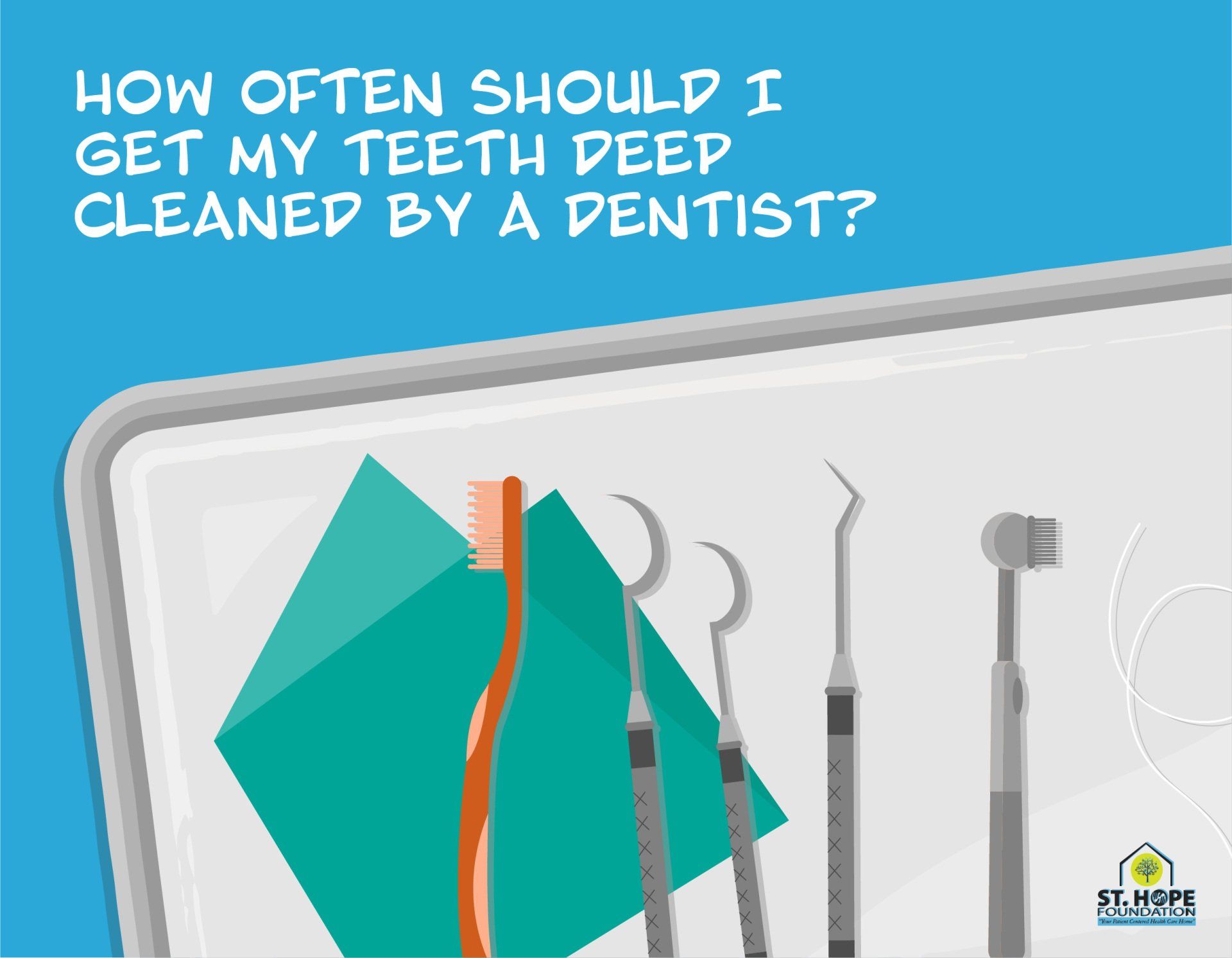Recent Posts
How Often Should I Get My Teeth Deep Cleaned by a Houston Dentist?

How frequently you require deep cleanings depends on the health of your gums. Patients with chronic periodontitis may require frequent deep cleanings, while people who brush and floss twice a day and see their dentist twice a year might never need a deep cleaning.
Gum disease, which is frequently referred to as periodontal disease by dentists, often goes unnoticed because it is not painful until the late stages. The progress of gum disease can be accelerated by the buildup of plaque and bacteria below the gum line. Regular cleanings polish your teeth and clean above the gum line, but a deep cleaning is designed to remove plaque and tartar below the gum line on the tooth root.
Why Is Deep Teeth Cleaning Necessary?
According to the CDC, the early stages of gum disease – gingivitis – can worsen and become periodontal disease. Periodontal disease is a very prevalent infection that affects 47.2 percent of adults age 30 and older and 70 percent of people over the age of 65.
The bacteria cause the gums to inflame and pull back from the roots of teeth, which can lead to bone and tooth loss. If left untreated the gums can begin lifting off the teeth, creating pockets.
What Is a Deep Teeth Cleaning Process?
A deep cleaning starts with scaling, a procedure your dentist uses to remove plaque and tartar above and below the gum line. This is done by scraping any hardened plaque off your teeth with a hook-like instrument or an ultrasonic instrument.
Scaling lets your dentist access hard-to-reach spaces below your gum line that a normal toothbrush cannot access. Scraping takes time, and it is the most time-consuming part of the deep cleaning process.
The dentist will then root plane to get deeper into the gums at the root of the tooth. Root planing smooths out your root surfaces to keep bacteria off of your teeth. The process makes it possible for your gums to re-attach to the tooth roots without the infected pockets.
A single root planing may not be enough to allow your gums to reattach. During a follow-up appointment your dentist will need to inspect your gums to see if they are beginning to show progress.
Does a Deep Teeth Cleaning Hurt?
The process is more uncomfortable than a normal teeth cleaning, as poking around below the gum line can cause discomfort. Your gums are a sensitive area; therefore, your dentist may administer a local anesthetic prior to your deep cleaning. They might also inject medicine before the procedure to prevent further infection.
Deep Teeth Cleaning Aftercare
After scaling and root planing, most patients experience pain for one or two days and tooth sensitivity for a week. Your dentist may prescribe medication or mouth rinse to continue to ward off bacteria and ease the discomfort.
The dentist will look to make sure the pockets are not as deep in the next appointment. They want to make sure your gums are firm and pink, and you are no longer experiencing any bleeding or signs of disease.
Many people can reduce their need for deep teeth cleanings with proper at-home care. Flossing and brushing at least twice a day can minimize the amount of plaque and tartar that clings to your teeth and make gum pockets less likely.
Routine Dental Check-Ups and Teeth Cleanings Can Help
The American Dental Association recommends that you work with your dentist to determine how frequently you visit for cleanings. Most patients should plan on visiting at least once every six months. Recommendations may range from a few times a year for high-risk patients to just once a year for particularly fastidious patients with good oral health.
Dental appointments are also a chance for your dentist and hygienist to check for warning signs of gingivitis, periodontal disease and various oral cancers. Early detection and intervention are the best ways to avoid serious dental diseases.
Scheduling routine checkups every year and getting your teeth cleaned can help you prevent:
- Bad breath
- Cavities
- Gum disease
- Gingivitis
- Receding gums
- Teeth abscesses
- Tooth loss
Visit St. Hope Foundation for Great Dental Care in Houston
If it has been longer than a year since your last dental visit, you are at risk for many mouth-related diseases.
For dental exams, regular teeth cleanings and deep teeth cleanings in Houston, Texas, contact our dental specialists at the St. Hope Foundation. We offer a variety of other dental services for patients of all ages. We strive to keep our dental care prices as low as possible so you can worry about your health and not your finances.
Book an appointment online or give us a call at (713) 778-1300 to get started.









